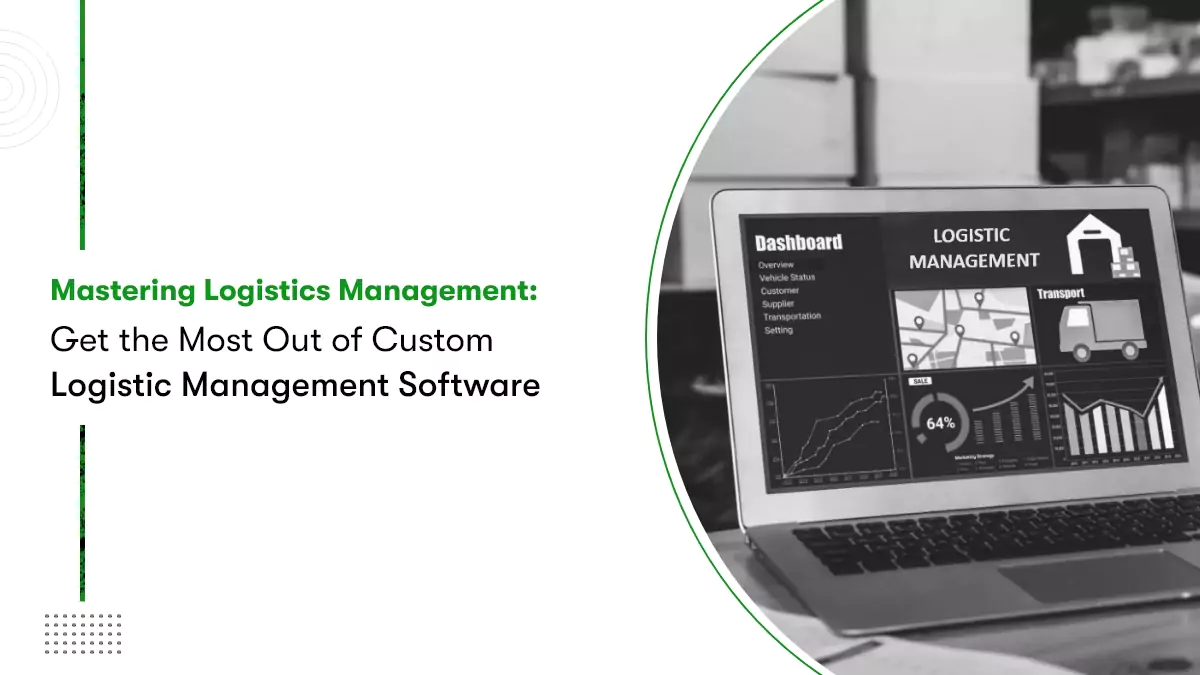The entire supply chain model adopted by industries is becoming extremely dynamic. Manual operations are replaced with automated models, and errors are replaced with perfection. The information-centric and technology-centric era is the key factor that drives this transformation in the supply chain transformation. The transformation increases organizational flexibility while making the entire data more accessible to the users and organizations.
The digital transformation of the supply chain model gives organizations a direction to work in an integrated manner. Organizations can uncover the company’s potential and think of ways to increase productivity, agility, effectiveness, reliability, performance, and value.
The rapidly changing landscape has benefitted industries in numerous ways. To give you a digital supply chain example, the US-based land transportation company J.B. Hunt used sensor-based technology and GPS in its operations. This implementation gave them better visibility of shipments and also helped them in advanced planning of the shipments and fill-ups.
The company’s EBIT margin rose from 3% to around 11% in 4 years. To concur with this achievement, we have several other statistics.
- Around 43% of companies use big data analytics in their practices;
- It is expected that 26 billion devices will be on the Internet of Things by 2020 (Analysis report yet to be out);
- Almost 37% of data will be on the cloud.
There will be numerous stories that can confirm the advancement benefits. And this is why top entrepreneurs believe that industries should digitize the operations in the supply chain model. Given that, the paradigm shift is extremely beneficial for the industries operating in FMCG and goods manufacturing.
These industries can take full advantage of digital technologies and effectively process the goods manufacture-demand-supply chain forecasting. Consequently, FMCG industries can revamp their operations and rapidly address the current state of the supply chain model.
Why is the digital supply chain important for industries, and what does it mean?
Various companies depending on the industry they function in, adopt digital supply chain transformation differently. Some of them implement machine learning and artificial intelligence to combine it with big data, while others may change the end-to-end supply chain model to digital.
Well, yes, based on the industry, the substitution of digitization differs drastically. However, the companies have to be quite speculative about the improvements they want to bring innovation to their adopted model.
Digital supply chain transformation helps industries sharpen their decision-making skills by corroborating cross-functional data of inventory, shipment, and orders at one point.
The digitization of the supply chain model will allow them to anticipate problems and make them capable of finding ways to solve them. Digital supply chain technologies make these industries more powerful by helping them structure their data, extract information from it, perform root cause analysis, and take corrective actions. The digital transformation also helps them establish a vision for the future of the company. It is important for their sustainable future in the market. The improvement factors will also include:
Faster supply chain:
The predictive analysis makes you well aware of the market trends, demands, and current supply, thereby allowing you to deliver goods beforehand. A great example of this is Amazon’s predictive shipping. Meaning the order is shipped before it is confirmed by the customer. It is already in the network, and it is matched with the demand once the order is confirmed.
Flexible organization’s operations:
Organizational operations become more flexible and less vulnerable to changing demands & supply. Industries can quickly address the dynamically changing requirements, making the organization more agile and flexible.

Make a more detailed-oriented approach:
By implementing digital transformation, companies can focus more on providing customized services and sophisticated scheduling of product delivery. They can focus on micro-segmentation, mass customization, and last-mile delivery of products.
Reduced costs:
A digital supply chain helps with things like knowing what’s going on, what’s needed, and what the requirements are. The information can help in optimizing processes, such as raw materials, operational logistics, inventory, forecasting, and resource planning. Therefore, companies that transform the supply chain model reduce process costs by almost 50%. Also, they can increase the revenue by almost 20%.
Less error and more efficiency:
With a digital supply chain, organizations have an unprecedented level of visibility into every element and moving part. This allows for real-time monitoring of supplier performance so that you can identify and prevent any potential disruptions before they cause any damage.
That’s how the automation of processes gives a tremendous boost to the supply chain model. Machines and technologies are even capable of handling warehouse operations, such as shipping and receiving supplied goods.
Expand business opportunities:
When you digitize a business, it uses new digital technologies to improve processes, functions, and operational efficiency. This is important for scaling up small businesses and achieving productivity and inclusive growth.
And once the business operations are streamlined, entrepreneurs can focus on reaching a new segment of the market. Industries can strengthen their business models and work in collaboration with various suppliers.
The supply chain in FMCG is not much different from any other industry. It deals with supply chain activities that can maximize the industrial output, increase customer value and deliver products without any breaks in the chain. Hence, a supply chain management system makes the entire cycle responsive to the customer’s needs. A generic supply chain model looks like this:
Raw Material/Parts Suppliers → Manufacturer → Retailer/Distributors → Customer
Imagine digital transformation in all of these categories of the supply chain model.
Talking about its implementation, in our opinion, you can implement it in every single sector from manufacturing to delivery.
- Manual machines can be replaced by automated machines that provide constant updates to the concerned person in real-time. This enables real-time visibility into the machine state and current production. As a result, you can conduct preventive maintenance and replacement of machines quickly and accurately. This reduces downtime and improves productivity as well.
- You can employ Driverless trucks into place that update the live location of the transit. This will allow for more efficient and timely delivery of the service or goods. It also frees up the time and resources of the transit authority to focus on more important tasks.
- You can use apps and their analytics for predictive shipping and meeting the customer’s needs. Digital technology means even the consumer can see where their online delivery is on its journey from the warehouse to their front door. Consequently, it increases customer satisfaction and loyalty.
- You can put Machines into place to put warehouse operations on autopilot mode. Automation can help improve efficiency in the warehouse – for example, by increasing fill rates and decreasing cycle times – as well as reducing labor and operational costs.
- You can use Drones for last-mile delivery or product pick-up. Using drones for deliveries can help speed up operations, decrease the delivery time for customers, and save the budget on supply chain management costs.
- Anyone can access Cloud data across the entireorganization. This means that the data is available without having to worry about its storage and security of the data. It also means that the data can become accessible from any device, anytime.
Conclusion
All of these activities are manageable using supply chain management software. And for the development, we are here to help. We, at Kody Technolab, would love to extend our expertise in developing supply chain management software like SAP, Oracle’s NetSuite, Epicor, Odoo, etc. Are you ready to lay down a roadmap to digital transformation? We assure you that you have a better chance to capture the value of the transformation.












 Contact Information
Contact Information